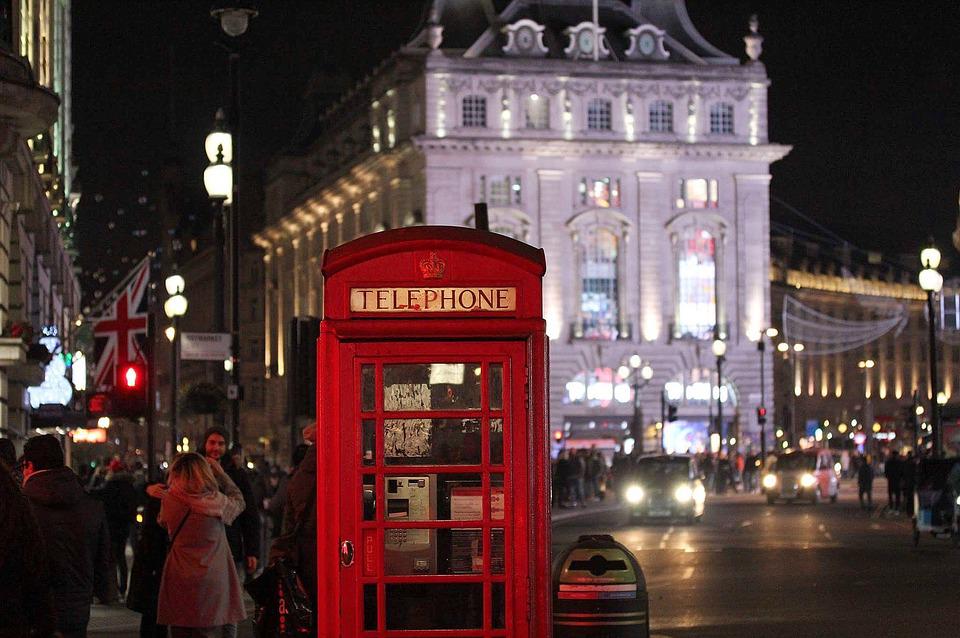The agreements of the National Health Service (NHS) have been completely rewritten. As such, it is a great private experiment and we do not know how it will end. If the Conservatives remain in power after 2015, the NHS will be history.
 Francisco Castañón
Francisco Castañón
Public Health officials have warned that in the next seven years, London hospitals must address a deficit of 4 billion pounds.
Moreover, in 2014 the mortality rate in British hospitals will be 22.5%, a very high figure when compared to other European countries.
Despite recent advances in the National Health Service, British people have a 50% chance of death by neglect. In January this year, the government revealed that the debt of South London Healthcare NHS Trust (SLHT), which manages the Queen Elizabeth, Queen Mary and Princess Royal hospitals, amounted to 200 million pounds.
Now, David Cameron’s government believes that privatisation might be a solution to improving the situation and to ending the debt problem; however some evidence shows that this may be a mistake.
This is the case of Surgi Centre Hospital, which after privatisation, has been repurchased by the British Government after three deaths in routine operations and the loss of 8,500 medical records.
Last year, the NHS declined 50,000 patients’ cataract or varicose vein surgeries, due to budgetary restrictions of the Conservative government. Still, over the next eight years, the public health sector faces possible privatisation.
Furthermore, the Healthwatch survey this year showed that one in five patients had experienced poor care, although out of these, 54% had not complained. In addition, one in three people confirmed they had suffered some form of neglect, i.e. a total of 2,286 people.
Even so, it seems the Cameron government wants to opt for a private health model very similar to that of the United States, whose population has a mortality rate of 40%, higher than the European average.
While the private sector controls health, the quality of service gets worse, which for many sectors of public opinion is a betrayal of the National Health Service, states Brian.
 Privatisation of a mental health institution in Southwark, or the use of the 111 helpline for patient support, are clear examples of what the government is doing in the NHS.
Privatisation of a mental health institution in Southwark, or the use of the 111 helpline for patient support, are clear examples of what the government is doing in the NHS.
Meanwhile, some politicians and the mainstream media suggest that the NHS does not work optimally and needs to be privatised. All this despite an international survey conducted in 2012 of citizens from 14 countries which showed that 92% of Britons had full confidence in their public health system. Brian Fisher is a doctor who has spent years involved in health politics and forms part of the “Save the Lewisham Hospital” platform. He spoke about these issues to The Prisma.
When and why did you get involved in this campaign?
We were fighting the Health and Social Care Act from 2010. I got involved with the Lewisham hospital campaign one year ago, because the threat to the hospital affects my health, my family’s health and the health of the patients that I look after in Lewisham. So it’s essential for my own moral position that I should get involved with it.
How is the change of the NHS after the crisis and the recession?
The Labour party before the change of government in 2010 had already planned cuts or reductions in spending on the NHS to save money.
But the Coalition government has also made huge changes to the NHS and they are almost all bad. So it’s not really about the money; it’s much more about the fact that the changes are almost entirely about privatizing the NHS.
So changing it from being essentially an organization that’s owned and run by the state to one that will effectively be planned and run by the private sector and this will be extremely damaging to the people’s health.
Which are the areas more affected in the NHS by the change of the government?
They just are beginning so it’s a bit difficult to predict how it is going to work.
But what we are beginning to see is that there will be some hospitals that will be taken over by private companies, and there will be quite a few community services that will also be taken over by private companies.
 That means things like physiotherapy, chiropody… and what we are worried about is that private companies don’t have the same interest in patient care as the NHS at all.
That means things like physiotherapy, chiropody… and what we are worried about is that private companies don’t have the same interest in patient care as the NHS at all.
We already seen in a number of examples that as soon as they start taking other services, then they cut people’s wages, they reduce the quality of the service, so they can give the money to the shareholders. We see this as a huge betrayal of what the NHS stands for.
Could you tell me some examples?
In Southwark, which is the next borough close to Lewisham, we had mental health services that haves been taken over by a private company. They cut the qualified staff and have insisted on running the service with unqualified staff that are supervised by the more qualified staff. So immediately the service is less safe but they can make more profit.
Another example is the 111 service, which is a national telephone advice service. The only way they could make that run profitably was by staffing it with people who are unqualified and go through algorithms on a computer but actually know nothing about people’s health at all and that has produced enormous problems and difficulties and actually reduced safety and effectiveness.
Are there any cuts in medicines?
Not really, we are entitled to the same range of medicines that we were before. But in order to save money within the NHS, there are a number of procedures and medicines that have been reduced. But they don’t have any clinical value anyway so that’s perfectly reasonable to do less of them or prescribe less of those medicines.
But also more importantly many CCGs have said that they won’t do two cataracts; they will only do one for people. So it is a way of saving money, which is not dangerous for people, but is not as good quality care.
And the professionals are going to suffer?
Mainly it will be those in hospitals, but the most important thing is that people’s health is going to suffer.
 The real difficult change that will affect everybody in the NHS equally is the idea that the NHS has to take money out of hospitals. They are the most expensive part on the National Health Service, so the idea is that we have to cut services in hospitals to transfer the money into the community.
The real difficult change that will affect everybody in the NHS equally is the idea that the NHS has to take money out of hospitals. They are the most expensive part on the National Health Service, so the idea is that we have to cut services in hospitals to transfer the money into the community.
However, there are significant problems with this idea, popular in the NHS at the moment. First the evidence for savings through moving services into the community is not very good. Secondly what it really means is the kind of things that is been happening in Lewisham. They start cutting very important part of the services like the accident and emergency services, which is very dangerous for the people’s health. So it is a very crude and dangerous way to try to save money.
Which hospitals are the most affected?
London is in a particular problem because there are so many hospitals in London. If you are the government, you think some of them have to go because they are too expensive and we can’t afford them all. But if you are campaigners like we are in Lewisham, we don’t see it like that, we think the clinical effect of the changes have to be studies in each area. You can’t just base changes on the finance, you have to make changes on the bases of what is good for the patients.
Why does the government want to close the Lewisham hospital?
In the recent past, in the next boroughs there had been three failing hospitals. About 6 years ago they put them all together. So now there was a very big hospital which was failing.
The solution that the government came out with was to sacrifice Lewisham hospital to save the other hospital, which is unfair and is not good for patients in Lewisham nor for other hospitals in SE London.
Why was that hospital not was profitable?
Because of the Private Finance Initiative (PFI), among other reasons. Very many hospitals have used this to build new buildings, but it is like buying a house or buying a mortgage.
You pay a company to lend you money and then you have to pay them back over 20 or 30 years.
The arrangements with these companies were so bad, that it has taken enormous amount of money out of the NHS. So this big hospital next to Lewisham has a very large PFI debt and it will never and ever pay back unless the government pays it off.
 There were other failings too. Poor clinical care and poor financial management, apart from the problems of PFI.
There were other failings too. Poor clinical care and poor financial management, apart from the problems of PFI.
Is there any other leitmotiv to do these big changes in the public service?
The main interest is to sell of the public service to corporate companies across the world.
That is the main interest that this coalition government has.
How is the Lewisham Campaign going?
In Lewisham there were some bits of luck. The council is co-terminous with the CCG and both council and CCG are very angry about this threat to the hospital.
Also we are very well supported by the local community and our MPs who also has been very supportively for the campaign. There is also a lot of history political activism in London, but in South East London we have created an enormous amount of energy. We have an excellent chair and we have wonderful skills in the community, including an excellent press team.
Immigration affects to the NHS?
The problem with the NHS has absolutely nothing to do with immigrants at all. In moral terms, it is completely unacceptable in a socialized health service to be adding charges particularly to people who don’t have jobs.
What is with the future for the NHS?
This government is on track to sell the NHS to private corporations. They have totally rewritten the NHS arrangements. So it is like a huge private experiment and we don’t really know how it is going to end. I predict that in a year or so GPs will walk out of the arrangements they have and it will be a very complicated disaster. Unfortunately the patients will suffer a lot. If the Tories or the coalition stay in power after 2015 I think the NHS will become history.
(Introduction translated by Susan Seccombe – Email: ess.translations[@]gmail.com) – Photos: Pixabay












.jpg)












